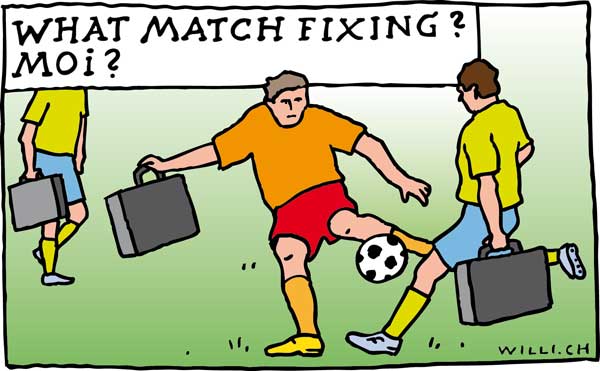By Paul Nicholson
August 7 – The involvement of organised criminal gangs (OCGs) in sports, and football in particular, is increasing in Europe and the Covid crisis has accelerated that increase, according to a new report by Europol, the European Union’s agency for law enforcement cooperation.
Europol estimates the size of the global betting market for all sports to be €1.69 trillion annually with football comprising €895 billion of that figure.
Globally the proceeds from betting-related match-fixing are estimated by Europol to be €120 million. The report does not take into account the unregulated betting markets which would likely more than double this figure.
“Sports corruption is a serious crime involving organised crime groups operating transnationally. These gangs are often poly-criminal and can well serve as a platform for organised crime groups to further high-scale money laundering schemes. The global annual criminal proceeds from betting-related match-fixing are estimated at €120 million,” said Europol in its report
“Online betting is increasingly used by organised crime groups to manipulate sports competitions and criminals usually target lower-level competitions across different sports, with football and tennis the most targeted sports by criminal networks.”
The impact of the Covid-19 pandemic and its derailment of normal business – including criminal business – has encouraged OCGs to turn increased attention to betting-related match-fixing.
“Criminal groups are flexible and exploit new opportunities during crises. Criminal business continued and it is anticipated that the long-term impact of the COVID-19 pandemic may be particularly significant in the area of organized crime, including money laundering and corruption,” said Europol.
At particular risk are lower-level leagues and the vulnerable, usually under-paid players and officials who are targeted and who can be more easily manipulated than the higher paid players in the big leagues.
The crime gangs work cross border and are highly sophisticated, says Europol. “Betting-related match-fixing can well serve as a platform to further high-scale money laundering schemes by the same OCGs involved in sports corruption for its own benefit, and/or to serve other OCGs in search of specialised ‘laundering services’.
Europol says that match-fixing is increasingly attracting “mafia-type crime groups such as Italian, Albanian-speaking, Russian-speaking Armenian and Asian OCGs. This crime is highly transnational by nature whereas the manipulation of sporting events may occur in any country and the associated betting activities may take place within or outside the EU, through online or off-line providers.”
It is also clear that crime groups are working with each other. “OCGs involved in sports corruption appear to have a multi-layer structure with specific roles, tasks and responsibilities. In addition, the European-based OCGs and Asian criminal syndicates may cooperate in different schemes or act autonomously,” said Europol.
More public-private cooperation in the fight against match-fixing is needed, said Europol, to ensure a consistent multi-stakeholder and multi-disciplinary approach to include law enforcement, judicial authorities, sports bodies, regulatory authorities and other public authorities, betting operators, as well as private companies providing betting monitoring and integrity services.
“It is paramount that MS (member states) and involved Third Parties would address and prioritise this challenging crime area more effectively as a way to tackle OCGs operating in the EU and beyond,” concluded Europol.
Download the full Europol report at https://www.europol.europa.eu/publications-documents/involvement-of-organised-crime-groups-in-sports-corruption
Contact the writer of this story at moc.l1737996965labto1737996965ofdlr1737996965owedi1737996965sni@n1737996965osloh1737996965cin.l1737996965uap1737996965

